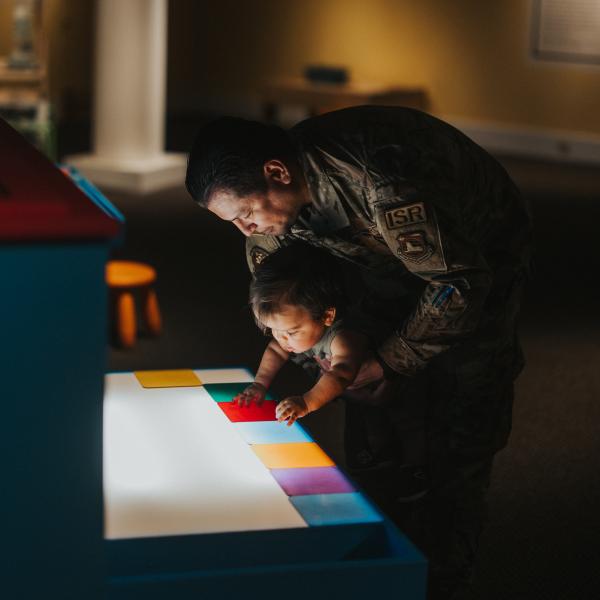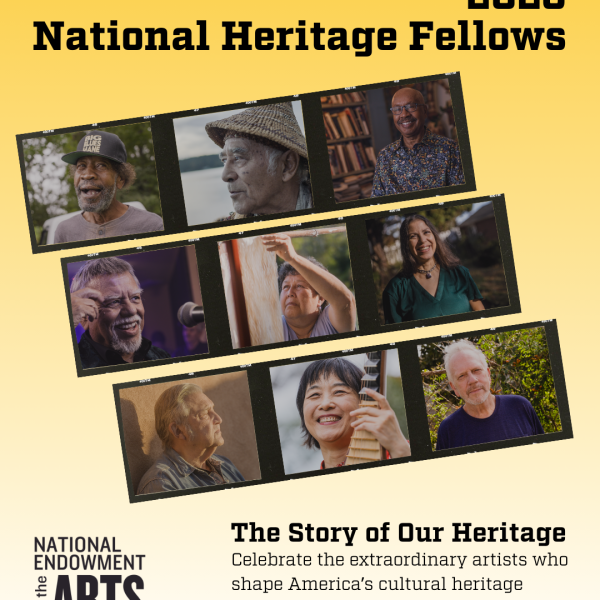National Endowment for the Arts Statement on the Death of National Heritage Fellow Phil Wiggins

Phil Wiggins plays for an audience during the 2017 NEA National Heritage Fellowships concert in Washington, DC. Photo by Tom Pich
Washington, DC—It is with great sadness that the National Endowment for the Arts acknowledges the passing of acoustic blues harmonica player Phil Wiggins, recipient of a 2017 NEA National Heritage Fellowship, the nation’s highest honor in the folk and traditional arts. A versatile harmonica player, Wiggins played in the Piedmont blues tradition, a gentle and melodic blues style of the mid-Atlantic region.
In a podcast interview with the NEA in 2017, Wiggins shared an early musical memory that shaped his love for acoustic country blues, “The church that my grandmother went to [in Titusville, Alabama], I think that the music that I heard at that church really influenced me quite a bit. I mean, I loved that and I think that's where I really started to fall in love with acoustic country blues—even though it wasn't blues, it was gospel music. That was the music that seemed to really touch me, to really have more impact on me than just about any other music that I had heard.”
As a teenager in the 1970s, Wiggins played at the Smithsonian National Folklife Festival with street singer Flora Molton, sitting in with blues greats Johnny Shines, Sunnyland Slim, Sam Chatmon, Robert Belfour, and Howard Armstrong. By the time he graduated from high school in 1973, Washington, DC blues elders John Jackson, John Cephas (1989 NEA National Heritage Fellow), and Archie Edwards had embraced him. He joined the Barrelhouse Rockers, a band fronted by pianist and singer Wilbert “Big Chief” Ellis, where Cephas played guitar. They toured regionally until Ellis retired in 1977, so they began performing as Cephas & Wiggins.
With Cephas as guitarist and primary singer, the duo performed together for 32 years as internationally renowned stars of the country blues, and a staple on blues radio, ever present on the concert and festival circuit. Cephas & Wiggins played Carnegie Hall, Royal Prince Albert Hall in London, and the Sydney Opera House, as well as small venues worldwide, touring every continent except Antarctica. They recorded more than a dozen critically acclaimed albums, on noted labels such as Flying Fish and Alligator Records, winning the prestigious W.C. Handy Blues Award in 1984 for Best Traditional Album of the Year and in 1987 as Entertainers of the Year. They even performed at the White House with B.B. King.
After Cephas passed in 2009, Wiggins continued performing with numerous musicians. He fronted the acoustic swing/roots/blues ensemble the Chesapeake Sheiks, and actively engaged in reuniting the Piedmont blues with its origins of African American buck and tap dancing. Wiggins taught thousands of burgeoning harmonica players and led workshops, such as at the Augusta Heritage Center of Davis & Elkins College in West Virginia and the Port Townsend Acoustic Blues Workshop in Washington State. Wiggins also served on the board of directors for the National Council for Traditional Arts.
In regards to receiving the NEA National Heritage Fellowship, Wiggins said, “I just did what I loved to do, and to be recognized for that is just wonderful to me. It just feels really good. It makes me feel like I'm in the right place.”
Watch Phil Wiggins’ performance at the 2017 NEA National Heritage Fellowships concert on September 15, 2017, at the Lisner Auditorium in Washington, DC.
Contact
Public Affairs
PublicAffairs@arts.gov




